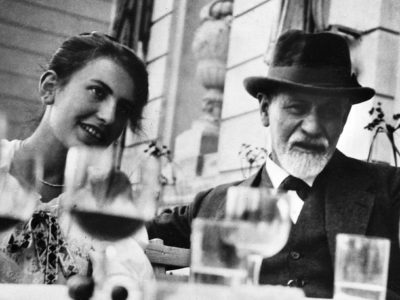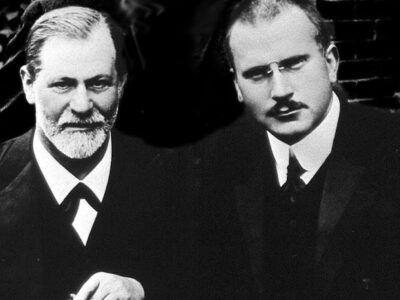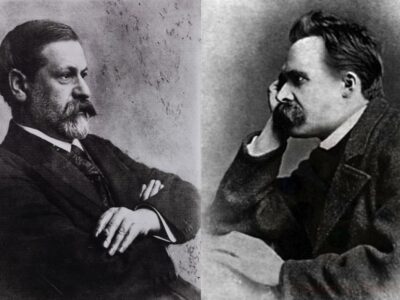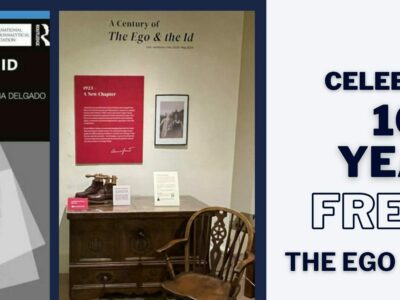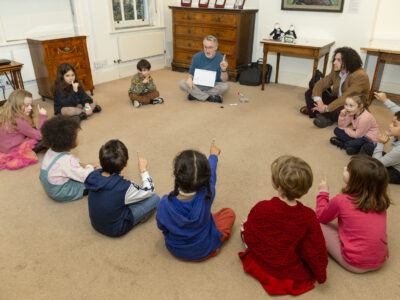
- This event has passed.
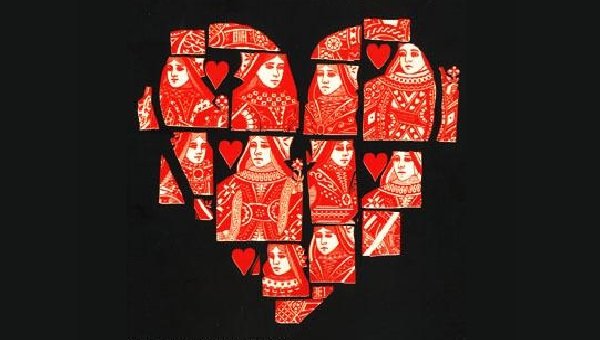
Tickets are priced on a pay-what-you-can basis, with a suggested donation of £10. Proceeds go on to help the Museum at this difficult time. All registrants will receive their joining link in a separate email. All registrants will automatically receive access to the livestream as well as the recording, available for 1 month. If you’re having trouble booking, please click here to book directly from our ticketing platform.
This event brings together four psychoanalysts – a Belgian living in London, an Argentinian living in Philadelphia, a Texan in Dallas, and an Irish at home in Dublin – to discuss love, hate and ambivalence.
Dany Nobus will speak on love… His presentation, entitled In the Beginning was Love, takes him back to the 6th of December in 1906, when Freud famously conceded to Jung that the psychoanalytic treatment “is effected by love”. This assertion, which Freud repeated almost verbatim at a meeting of the Psychological Wednesday Society in January of the following year, has generally been interpreted as an unequivocal index of how psychoanalysis cannot proceed in the absence of transference. However, in this succinct contribution, Dany recalibrates it from the perspective of Freud’s 1923 essay ‘Negation’. As such, he will argue that a subjective act of love, as ‘radical affirmation’, is not only the necessary pre-condition for all subsequent negative judgements, and thus for hate and ambivalence, but also the essential prerequisite for the emergence of the three fundamental metaphysical dimensions that structure human existence: ethics (good vs. bad), aesthetics (beauty vs. ugliness) and epistemology (truth vs. falsehood). If the psychoanalytic treatment is effected by love, Dany says, it is because love symbolizes the heart of the human condition.
Patricia Gherovici will speak on hate… In her presentation, Je t’aime, moi non plus, or Hate older than Love, Patricia begins by emphasising how Freud’s maintenance that early in life there is no distinction between love and hate thus moves away from the claim that hatred originates from love and sexual drives. Freud argues that hate comes into being alongside the constitution of the ego; it expresses the ego’s self-preservation instincts, the will to power, and the urge for mastery. It could be said that in psychoanalysis hatred is not an affect to be ignored, especially in transference. While transference has often been theorized on the axis of love, Donald Winnicott gets straight to the point in a well-known text entitled “Hate in Countertransference” (1949). If Freud points out that hatred is a separation strategy that demarcates a boundary between an inside and an outside that ensures the permanence of both, Winnicott suggests that an analyzed hatred allows the other to survive the aggression it generates—to exist as such. Hatred is the precursor of a separation that gives security to the connection. Winnicott and Freud agree on this point: hatred is at the origin of thought, without hatred there is no separation, and without separation there is no construction of the body and the psyche. Can hate not only destroy the Other but make it exist? Lacan characterized our age as a civilization of hatred. Patricia asks what would this “civilization” of hatred consist of?
Stephanie Swales and Carol Owens will speak on ambivalence… In their presentation, The Jouissance of Ambivalence, they remind us that Freud identified an unconscious ambivalence at the heart of human relationships, and for psychoanalysts today ambivalence is still regarded as an essential aspect of human subjectivity. The great British psychoanalyst Adam Phillips has argued precisely that it is our ambivalence that reveals what matter to us, and it is the way we recognise that someone or something has become important to us. However, in culture and society at large ambivalence seems nowadays to be an objectionable state of being; it seems we are no longer acceptable when “in two minds” about anyone or anything. It appears that to be ambivalent is to be regarded as “undecided”, “unsure”, and “uncertain”—all of which are deemed negative characteristics in a time when certainty, single-mindedness, and conviction are privileged. The two poles of our ambivalence are love and hate, and these affects as well as the tensions that arise from the unconscious repression of either are symptomatic from a clinical and cultural point of view. In contemporary society, human subjectivity is constituted in tension on account of two influential and contradictory ideologies: on the one hand, we are encouraged to love our neighbour unconditionally and indiscriminately, but on the other hand, since the version of capitalism which structures most societies is neo-liberal, we are in fact encouraged to fight and compete with our neighbour whose success may rely upon our failures. Stephanie and Carol explore some of the tensions and jouissance associated with what they claim is a foreclosure of ambivalence in our contemporary social world.
SPEAKERS
Patricia Gherovici a psychoanalyst and analytic supervisor. She is co-founder and director of the Philadelphia Lacan Group and Associate Faculty, Psychoanalytic Studies Minor, University of Pennsylvania (PSYS), Honorary Member at IPTAR the Institute for Psychoanalytic Training and Research in New York City, and Founding Member of Das Unbehagen. Her books include The Puerto Rican Syndrome (2003) winner of the Gradiva Award and the Boyer Prize, Please Select Your Gender: From the Invention of Hysteria to the Democratizing of Transgenderism (2010) and Transgender Psychoanalysis: A Lacanian Perspective on Sexual Difference (2017) She has published with Manya Steinkoler two edited volumes, Lacan On Madness: Madness Yes You Can’t (2015) and Lacan, Psychoanalysis and Comedy (2016) and, with Chris Christian, Psychoanalysis in the Barrios: Race, Class, and the Unconscious (2019) Gradiva Award; American Board and Academy of Psychoanalysis Book Prize.
Dany Nobus is Professor of Psychoanalytic Psychology at Brunel University London, Founding Scholar of the British Psychoanalytic Council, and former Chair and Fellow of the Freud Museum London. He has published numerous books and papers on the history, theory and practice of psychoanalysis, most recently The Law of Desire: On Lacan’s ‘Kant with Sade’ (Palgrave 2017) and Thresholds and Pathways Between Jung and Lacan: On the Blazing Sublime (edited with Ann Casement and Phil Goss) (Routledge 2020). In 2017, he was the recipient of the Sarton Medal of the University of Ghent (Belgium) for his outstanding contributions to the history of psychoanalysis.
Carol Owens is a psychoanalyst and Lacanian scholar in Dublin. She is the cofounder of the Dublin Lacan study group. She has lectured and published widely on the theory and practice of Lacanian psychoanalysis. Her most recent book is Psychoanalysing Ambivalence with Freud and Lacan: On and Off the Couch with Stephanie Swales (Routledge, 2019). She is series editor for Studying Lacan’s Seminars published by Routledge.
Stephanie Swales is an Associate Professor of Psychology at the University of Dallas, a practicing psychoanalyst, a licensed clinical psychologist, and a clinical supervisor located in Dallas, Texas. She has published numerous articles and book chapters within the field of Lacanian psychoanalysis, including having authored two books: Psychoanalysing Ambivalence with Freud and Lacan: On and Off the Couch (Routledge, 2019), co-authored with Carol Owens, and Perversion: A Lacanian Psychoanalytic Approach to the Subject (Routledge, 2012). She is the founder of the Dallas/Fort Worth area Lacan Study Group, serves as Secretary for the Society for Theoretical and Philosophical Psychology (APA’s Division 24), and serves on the executive boards of the Dallas Postgraduate Program in Psychoanalytic Psychotherapy as well as the Dallas Society for Psychoanalytic Psychology.
